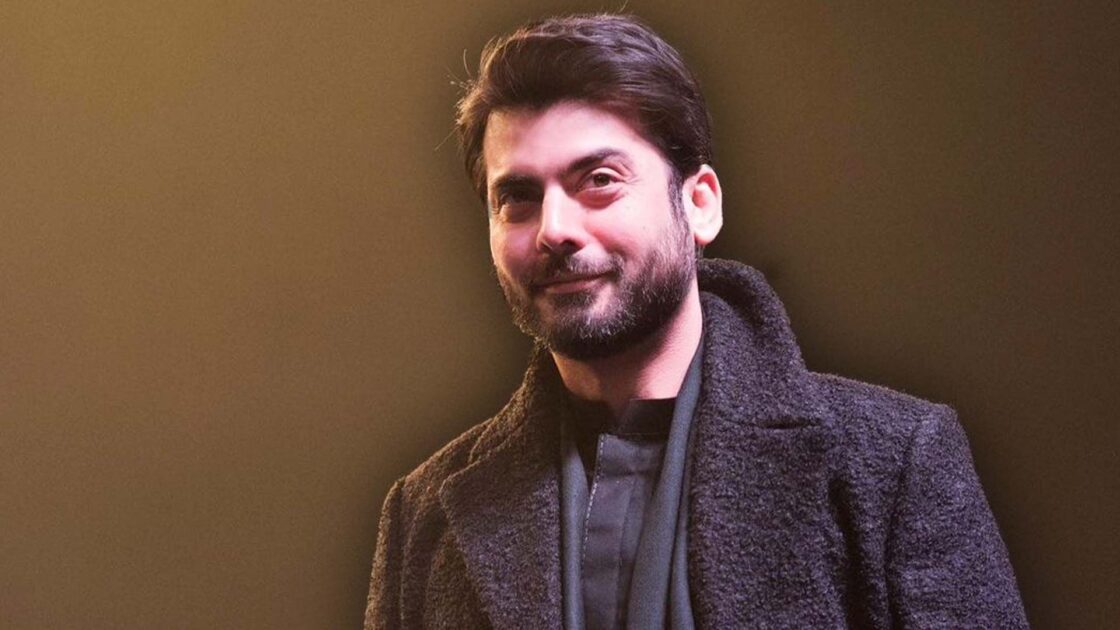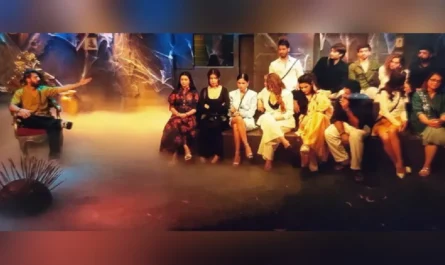In the aftermath of the April 22, 2025 mass shooting in Pahalgam’s Baisaran Valley, where assailants opened fire on tourists and civilians—leaving at least 26 dead and more than 20 wounded—cinematic communities across India and Pakistan have united in sorrow and solidarity with the victims and their families. Leading the Pakistani response, Fawad Khan, returning to Hindi cinema after a nine-year hiatus, described the atrocity as “heinous” in an Instagram statement, offering prayers for the bereaved and urging collective rejection of violence. His remarks came amid intensifying online and industry-level calls to boycott his forthcoming Bollywood project, the romantic drama Abir Gulaal, reflecting the fraught intersection of art and geopolitics. Meanwhile, Indian stars such as Vaani Kapoor and Ridhi Dogra have also publicly mourned the dead, underscoring the entertainment world’s capacity to transcend national divides in moments of shared grief.
The Pahalgam Attack: A Tragic Turn of Events
On the afternoon of April 22, 2025, at approximately 2:30 pm local time, four militants descended from the hills overlooking the scenic Baisaran meadow at Pahalgam in Jammu and Kashmir and opened indiscriminate fire on unsuspecting tourists, marking one of the deadliest civilian attacks in the region in years. The assailants, identified as members of The Resistance Front—an offshoot of the Pakistan-based Lashkar-e-Taiba—were armed with M4 carbines and AK-47 rifles, unleashing over 70 rounds in a calculated ambush that left both Indian nationals and foreign visitors among the casualties. According to official reports, twenty-six people died on the spot or succumbed to injuries later, including two Nepalese and one Emirati tourist, while more than twenty others were wounded and rushed to nearby hospitals for emergency treatment. Within hours, Indian security forces cordoned off the area and launched a manhunt for the perpetrators, even as Prime Minister Narendra Modi condemned the massacre as an “act of cowardice” and vowed swift justice for those responsible.
Fawad Khan’s Response: A Voice of Solidarity
Among the Pakistani celebrities responding to the tragedy, Fawad Khan—best known to Indian audiences for his roles in Khoobsurat (2014), Kapoor & Sons (2016), and Ae Dil Hai Mushkil (2016)—was particularly vocal. In his Instagram story, the actor wrote: “Deeply saddened to hear the news of the heinous attack in Pahalgam. Our thoughts and prayers are with the victims of this horrifying incident, and we pray for strength and healing for their families in this difficult time”. Khan’s statement carried extra weight as he prepares for his long-awaited Bollywood comeback in the rom-com Abir Gulaal, directed by Aarti S. Bagdi and co-starring Vaani Kapoor. By condemning the violence so emphatically, Khan reaffirmed the shared humanity that binds artists and audiences across the India–Pakistan divide, even as national tensions simmer.
A Wave of Condemnation: Bollywood Unites Against Terror
In India, the shooting prompted an outpouring of grief from a cross-section of the film fraternity. Shah Rukh Khan, Katrina Kaif, Kareena Kapoor Khan, Priyanka Chopra Jonas, Ranveer Singh, Akshay Kumar, Janhvi Kapoor, Vicky Kaushal, Karan Johar, Sanjay Dutt, Sonu Sood, Anushka Sharma, Rashmika Mandanna, and Anupam Kher were among the luminaries who took to social media to denounce the attack and call for unity in the face of terror. Their messages emphasized solidarity with the victims’ families and stressed that violence against innocent civilians can never be justified, no matter the motive. On the Pakistani side, actors Hania Aamir, Mawra Hocane, and Farhan Saeed also expressed shock and sorrow, signaling a rare moment of concordant public sentiment across borders. Through these collective statements, the film industries of both nations reaffirmed their shared responsibility to speak out against atrocities and foster healing through art.
Vaani Kapoor, Khan’s Abir Gulaal costar, posted on her Instagram story: “Have been numb, at a loss of words since the time I have seen the attack on innocent people in Pahalgam. Gutted. Devastated. My prayers are with the families” Hindustan Times. Similarly, Ridhi Dogra, who also appears in the film, urged her followers to denounce extremism, writing, “It’s about time the good Muslims stepped up and rejected the monsters and CALLED THEM OUT! Break ties with people and places that remain silent” The Times of India. Their remarks underscore how, even amid entertainment moguls and fans debating geopolitical alliances, individual artists can harness their platforms to champion peace and empathy.
The Abir Gulaal Controversy: Art Caught in Geopolitical Crossfire
Abir Gulaal, scheduled for release on May 9, 2025, is a Hindi-language romantic comedy directed by Aarti S. Bagdi and produced by Vivek B. Agrawal, Avantika Hari, Rakesh Sippy, and Firuzi Khan. The film tells the story of Gulaal Bajaj (played by Vaani Kapoor), a talented chef whose culinary competition win secures her a position at The Rasoe, a London restaurant owned by the reserved and exacting Abir Singh (Fawad Khan). As the duo navigate professional clashes and personal vulnerabilities, their initial antagonism gives way to an unexpected romantic bond, set against sumptuous backdrops in London and India. With an ensemble that includes Lisa Haydon, Ridhi Dogra, Farida Jalal, and Soni Razdan, the film embodies the collaborative spirit that has characterized many India–Pakistan projects over the past decade.
However, following Khan’s condemnation of the Pahalgam attack, social media campaigns quickly sprung up urging a ban on Abir Gulaal, arguing that Indian artists should not collaborate with Pakistani talent amid ongoing cross-border terrorism. Ashoke Pandit, President of the Indian Film & Television Directors’ Association (IFTDA), escalated the pressure by declaring: “This incident is an act of war against the nation. We, as a federation, have requested with folded hands to not work with Pakistanis…Ultimately, the nation must come first. We will issue an order that anyone who works with Pakistani artistes will be boycotted by the industry”. The Federation of Western India Cine Employees (FWICE) subsequently reaffirmed its 2019 directive barring Pakistani artists from Indian productions, casting doubt on whether Abir Gulaal will secure a theatrical release in India.
Historical Context: Fawad Khan’s Bollywood Journey
Fawad Khan first captured Indian audiences in 2014 with his Disney-produced rom-com Khoobsurat opposite Sonam Kapoor, followed by acclaimed roles in Kapoor & Sons and Ae Dil Hai Mushkil (both 2016). His suave screen presence and comic timing earned him a devoted fan base, but after the 2016 Uri terror attack and ensuing political fallout, Bollywood collaborations with Pakistani talent sharply declined. Consequently, Khan’s Hindi-film projects stalled, and he shifted focus back to Pakistani television and film until signing on for Abir Gulaal in mid-2024—an event widely covered as his “bollywood comeback after nine years”. That comeback, which represented not just a personal milestone but also a hopeful sign of cultural rapprochement, now hangs in the balance amid renewed calls for boycotts.
Implications for Cultural Diplomacy
Bollywood has long served as one of India’s most potent soft-power tools, forging people-to-people connections across South Asia and beyond through shared language, music, and storytelling. Even when formal diplomatic channels falter, cinematic collaborations—such as the popular Pakistani tele-dramas on ZEE5 and Indian platforms—have bridged divides, nurturing empathy and common cultural ground. Yet, as the Pahalgam attack demonstrates, any resurgence of cross-border violence threatens to unravel these fragile ties, prompting industries to grapple with the ethics of engagement versus solidarity with national sentiment. The Abir Gulaal dispute thus highlights a recurring dilemma: should art be sequestered from politics, or does collaboration inherently carry political resonance?
Looking Ahead: The Road to Healing and Unity
As security forces intensify efforts to capture the Pahalgam gunmen and Prime Minister Modi pledges “the perpetrators will be punished beyond their imagination,” the broader community—artists and audiences alike—faces a pivotal choice: to allow fear and division to dictate cultural exchange, or to reaffirm the unifying power of art in adversity. For Fawad Khan, Vaani Kapoor, and their colleagues, this moment presents both a challenge and an opportunity: by standing together against terror and advocating for dialogue over discord, they can help restore faith in the connective potential of cinema. Whether Abir Gulaal ultimately reaches Indian screens may depend as much on public sentiment as box-office logistics—but the collective outcry against violence in Pahalgam affirms that, despite geopolitical fault lines, the art of storytelling remains a shared human endeavour.



